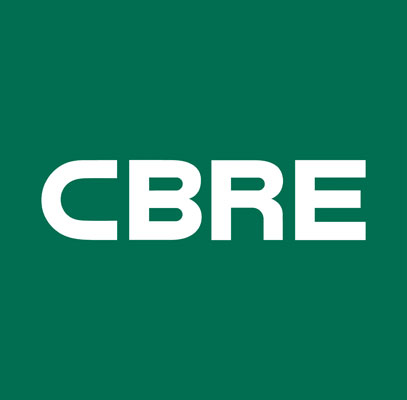Ten years ago the most successful independent retail agency sold out to the big green giant. Many thought it would not work. They were wrong
It was the takeover that many expected to fail. Malcolm Dalgleish’s eponymous firm merging with CBRE? A bunch of brash, arrogant, beer-drinking brokers joining forces with a traditional, US-based, global corporate that would take a glass of crisp chardonnay over a pint any day? No way would that last, went much of the pub chatter when the deal was announced in October 2005.
In fact, it has been one of the most successful mergers of the past decade.
“Most people didn’t understand Dalgleish, that was the thing,” says Dalgleish. “Most people thought Dalgleish was just an aggressive retail organisation, but in fact we were a very organised company. Aggressive, but organised.”
Ciaran Bird, one of Dalgleish’s many “number twos” 10 years ago and now UK managing director of CBRE, agrees.
“It was a very special environment and the competition never understood how we were winning all the work. As a result of that they saw us as aggressive because we were out-and-out brokers.”
For both Dalgleish and Bird, the way Dalgleish (the firm) operated – working hard and playing hard, but always with the client in mind – was the reason it was so successful. When it was sold to CBRE in October 2005 for almost £30m, it comprised 90 staff and turned over almost £20m.
Bird says no one thought the Dalgleish culture would fit into a corporate culture for two reasons. Firstly, people thought that the Dalgleish people behaved in a way that would not be acceptable to any corporate.
“They didn’t realise the professionalism behind it,” says Bird. “The partying was all partying with the clients.”
The second reason, he says, was a personal worry. There was some concern that the unknown corporate would start telling them how to behave and how to treat their clients.
Bird remembers telling Martin Samworth, then UK managing director, now EMEA chief executive, that he had no idea what he had just bought and that if CBRE changed one thing about the Dalgleish business, the whole thing would collapse.
He was taken aback when Samworth responded: “Why do you think we would buy a business like Dalgleish if we wanted to change one thing?”
And it seems that statement and CBRE’s commitment to it, is at the heart of the Dalgleish business’s growth within a corporate where others may have failed. “They let us carry on. They let us breathe and that is the reason it is still there,” says Dalgleish. “If they hadn’t allowed that breathing, everyone would have rebelled.”
Bird admits: “I thought I would be gone within my two- year period. But I did also think I would learn as much as I could from the world’s biggest, best property adviser. Because we were allowed to do what we did, and because our clients were getting even better service, you suddenly thought, ‘This is amazing, I’m in a sweet shop’.”
Being able to access other parts of the business convinced Dalgleish employees that the sale was the right thing, too. Dalgleish had long advised Marks & Spencer, but with no valuation team was unable to do that work. At CBRE this was no longer the case and a simple referral netted a healthy fee-share agreement.
“We embraced the people around us in different departments by offering a joined-up service,” says Bird, “and the menu of options for our clients was suddenly vast.”
Both Dalgleish and Bird admit that Dalgleish as was would probably have struggled in today’s retail world.
“The world is a much smaller place than it was 10 years ago,” says Dalgleish. “Dalgleish was just UK and doing retail outside the UK from a UK base is tricky. You can waste an enormous amount of money. What CBRE provided was offices all over the world. Over a period of time we had a network of offices, people and clients who were all talking to each other, all the time.”
“No one has replaced Dalgleish and Churston Heard, which were the market leaders, and I’m not sure anyone could,” adds Bird. “And one of the reasons for this is simply the requirements of our clients on a global perspective. They need mixed-use advice. I don’t think the Dalgleish of old could compete with CBRE Retail of today.
Dalgleish cuts in: “We would have had to change. All the niche firms that were around 10 years ago have virtually disappeared in one way or another.”
“Retail is a global business now and if you can’t give retailers advice around their logistics, around their multichannel, around their head office and give them advice on their strategy overseas, then they are going to go to a competitor and that is where the Dalgleish model would have struggled,” says Bird. “We would have lost business to global operators.”
Dalgleish changed anyway. He knew that for the business to thrive within CBRE it needed to be led by someone else, someone who could bring the two firms together. That job of head of retail went first to Bird and then, following his promotion to UK managing director in 2012, to Phil Cann, another veteran of Dalgleish days.
But now that the culture of Dalgleish is the culture of CBRE Retail, Cann is likely to be the last original Dalgleisher to run the retail business.
That leadership and the instilling in all retail staff of the philosophy that the occupier is at the heart of everything in property have enabled CBRE’s retail business to expand from 95 people and a turnover of £20m when Dalgleish was acquired to almost 200 people and a turnover of more than double that today.
“When I sold out I never expected to be here now,” concludes Dalgleish. “I’m still here because I enjoy it. Of all the things CBRE does, it opens up doors. There cannot be a better place to be if you want to be involved in the property industry, not just in the UK but around the world.”











